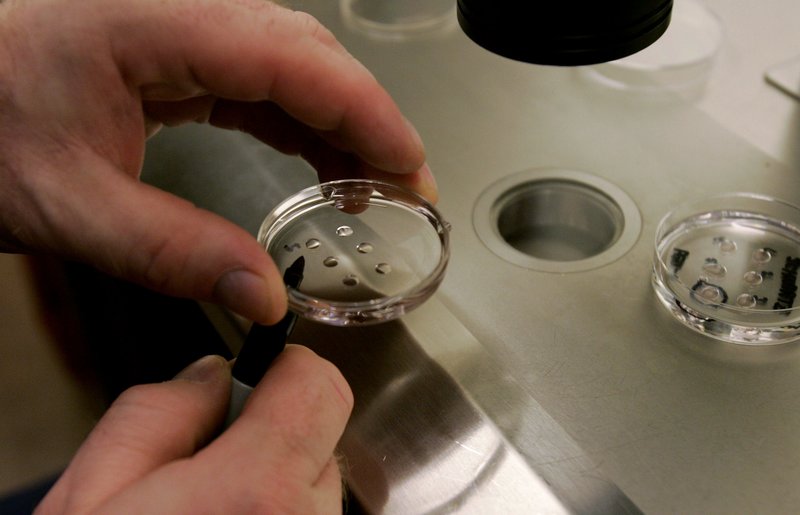無需精卵的人造胚胎問世對人類意味著什么,?

|
荷蘭科學(xué)家在胚胎學(xué)領(lǐng)域?qū)崿F(xiàn)突破,培養(yǎng)出無需精子和卵子的純?nèi)斯づ咛?。雖然目前只用老鼠胚胎實(shí)現(xiàn)人工培養(yǎng),,但這項成果可能對治療人類不孕不育提供啟示。 荷蘭科研機(jī)構(gòu)技術(shù)啟發(fā)再生醫(yī)學(xué)研究所(MERLN)的研究人員利用非配子(即傳統(tǒng)生殖細(xì)胞)的老鼠細(xì)胞,,培育出“類囊胚結(jié)構(gòu)”,,即哺乳動物發(fā)育初期的形態(tài)。他們僅用了兩類老鼠的干細(xì)胞,,就獲得了大量傳統(tǒng)嬰兒發(fā)育過程中才能形成的細(xì)胞,。而且,類囊胚還附著在雌性老鼠的子宮上發(fā)育數(shù)日,??茖W(xué)家稱之為醫(yī)學(xué)史上首次。 這項生物醫(yī)學(xué)技術(shù)對人類有什么益處,?可能有助于研究不孕不育,,包括胚胎發(fā)育著床階段的自然流產(chǎn)。研究主管尼古拉斯·瑞瓦隆博士向英國廣播公司(BBC)表示:“現(xiàn)在我們可以生成大量此類胚胎,,仔細(xì)研究,。可能有助于我們理解為何一些胚胎不能著床,,從而選擇可能幫助生育的藥物,?!? 但理想距離現(xiàn)實(shí)可能還有很長一段路。首先,,培養(yǎng)人造人類胚胎并移植,,需要申請監(jiān)管批準(zhǔn)。和美國相比,,中國和英國等地在某種程度上更為寬容(2016年,,英國就為防止嬰兒罹患可能致死的遺傳性疾病批準(zhǔn)了三合一胚胎人工授精技術(shù))。盡管如此,,與人工胚胎有關(guān)的技術(shù)大多面臨生物倫理學(xué)爭議,,哪怕只是少許基因工程改造。(財富中文網(wǎng)) 譯者:Pessy 審校:夏林 |
Dutch scientists have made yet another advance in embryonic science, creating synthetic embryos (mouse embryos, that is) without the need for sperm or eggs. Down the line, the achievement could have implications for human infertility, too. Using mouse cells that weren’t gametes (the traditional sex cells), researchers from the MERLN Institute for Technology-Inspired Regenerative Medicine in the Netherlands were able to create “blastocyst-like structures”—which form during the early developmental stage for mammals. This was done using just two types of mouse stem cells, and the resulting mass of cells resembled what you’d expect from the more traditional baby-forming process. What’s more, these structures were then attached to the wombs of female mice and grew for several days in what the scientists claim is a medical first. So how exactly might such biomedical technology benefit humans? For one, it could assist in infertility research, including the kind centering on miscarriages that occur at the implantation stage of development. “We can now generate extremely large numbers of these embryos and study them in detail,” lead researcher Dr. Nicolas Rivron told the BBC. “It could help us understand why some embryos fail to implant and let us screen for drugs that might help with fertility.” But that reality may be a ways away. For one thing, creating and implanting artificial human embryos would require regulatory clearance. Nations like China and the U.K. have been somewhat more lenient on this issue than the United States (the U.K. paved the way for three-parent babies to combat devastating genetic disorders back in 2016), but most things involving even a whiff of genetic engineering still come with a fair bit of bioethical controversy. |













